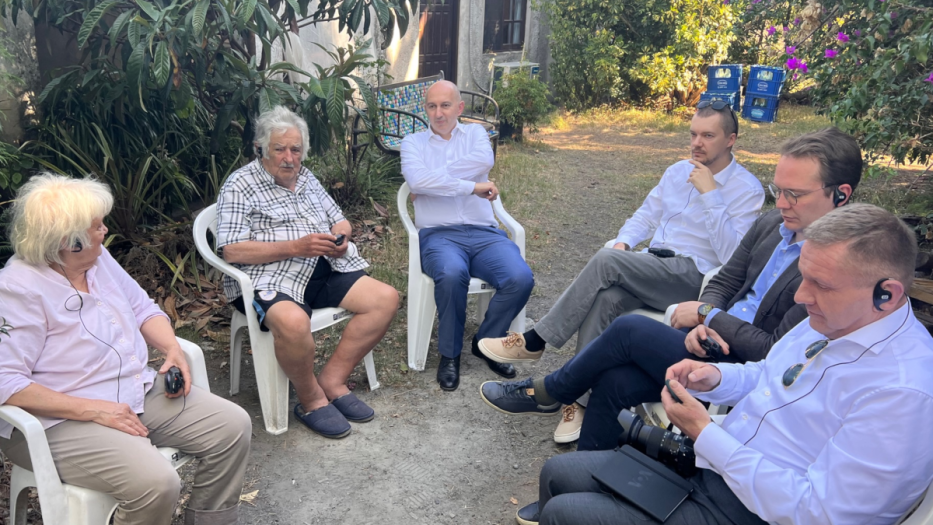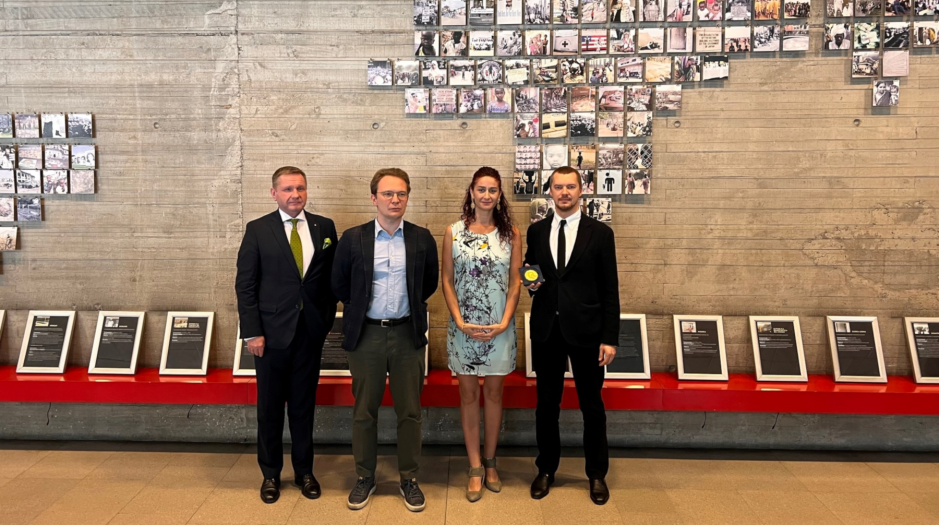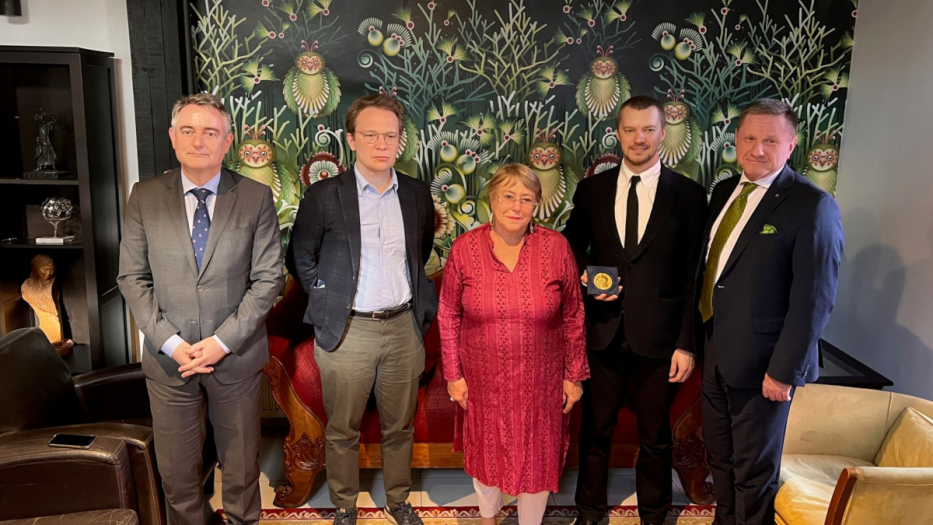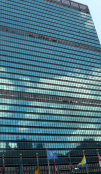Nobel Peace Prize Winners’ Latin American tour counters Russian disinformation
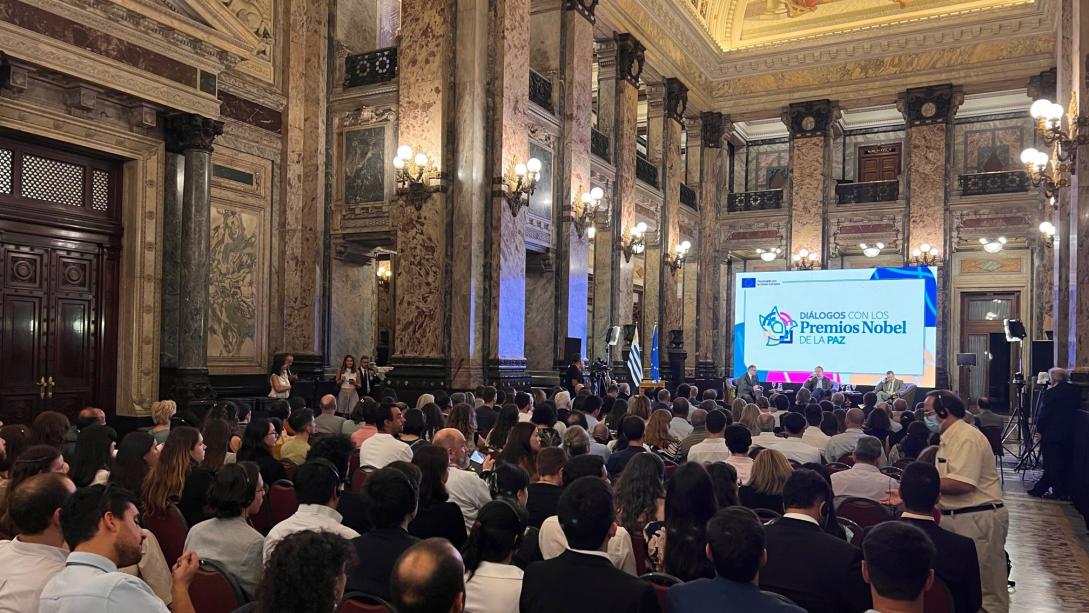
They are stories about violations of human rights, the suppression of political opposition and about the unjustified invasion of Ukraine.
Pavel Andreyev, is member of the Board of Directors of Russian NGO Memorial which, for its tireless defence of human rights in Russia and abroad, was a joint winner, with human rights advocate Ales Bialiatski from Belarus and the Ukrainian human rights organisation Center for Civil Liberties, of the 2022 Nobel Peace Prize. One of the oldest NGOs in Russia, Memorial also conducted historical research on political repression and the forced disappearances in the Soviet Union’s past.
Kirill Martynov, is former Deputy Editor-in-Chief of Russian daily Novaya Gazeta, whose Editor-in-Chief Dmitry Muratov was awarded the 2021 Nobel Peace Prize together with the Philippine journalist Maria Ressa. He received it for leading the independent daily newspaper’s work in defence of freedom of expression, democracy and human rights.
Russia’s principal independent media outlet, Novaya Gazeta owes its reputation to the persistent work of its journalists which, tragically, has been marked by six assassinations since 2000. Over the course of almost 30 years, Novaya Gazeta published thousands of articles depicting the realities of post-Soviet Russia. Mr. Martynov is currently Editor-in-Chief of the exiled Novaya Gazeta Europe.
The Nobel laureates were accompanied by a well-known Russian journalist and political analyst Konstantin Eggert, who moderated the discussions throughout the tour.
It is forbidden to use the word ‘war’ in Russia. Moreover, Russian authorities persecute anyone calling for peace. This would be unthinkable even in the former Soviet Union
-Kirill Martynov, Novaya Gazeta
The main goal of the Nobel Peace Prizes Tour was that these distinguished and internationally recognised representatives of Russia’s civil society share their experience and views with politicians, representatives of civil society, academics and students, based on the real stories of the organisations they represent.
Touring Latin American countries
The tour first went to Uruguay, where the Nobel laureates addressed diverse crowds at the prestigious main hall of the Parliament in the capital Montevideo. They also had a very open exchange of views about the need to stand up to authoritarian regimes with the first Uruguayan post-dictatorship President Julio María Sanguinetti and with the globally known "world's poorest president" Pepe Mujica, President of Uruguay from 2010-2015.
The tour had the opportunity for a poignant visit to the The Parque de la Memoria – Monument to the Victims of State Terrorism upon crossing the mouth of the river Rio de la Plata to Buenos Aires, the capital of Argentina.
The Parque de la Memoria memorial park was created to commemorate the tens of thousands of victims of the Argentinian era of dictatorship in the 20th century. The lively debate with the students of the UADE University demonstrated the interest of young Argentines in human rights and geopolitics.
Further along, in Brasilia, the capital of Brazil, they met with the key figures from in the spheres of human rights, judicial power and foreign policy.
Given that Brazil recently declared its desire to contribute to the peaceful settlement of the war launched by Russia in Ukraine, it was important to share the opinion of organisations honoured by the world-famous Nobel Committee, that no lasting peace can be found while Russian troops occupy the territory of Ukraine.
High profile media
Sao Paulo , the financial centre of Brazil was the setting for in-depth interviews with high profile media organisations such as Folha de Sao Paulo and CNN Brazil.
The tour of the largest country in Latin America concluded with a lecture and discussion with the highly knowledgeable students of the IBMEC University. They were shocked to hear about the persecution of LGBTIQ+ people in Russia, amongst other things.
The final stop of the tour of Latin America was in Santiago, Chile, where the programme included a number of highly publicised public interventions at the Museum of Memory and Human Rights. They also met with the Foreign Minister of Chile, Alberto van Klaveren.

All in all, the Nobel Prize Winners met with six former Presidents, one Vice President, one President of the Chamber of Representatives and two Foreign Ministers. In each country, the winners of the world’s most prestigious peace prize were greeted by large audiences of students, scholars and civil society in key university and parliamentary settings.
All the countries on the tour underwent difficult transitions from authoritarian regimes to full-fledged democracies in recent decades. Every meeting and public debate revealed the deep interest the local interlocutors have in maintaining a stable multilateral world order based on full respect for the UN Charter.
The local audiences were also keen to develop a better understanding of the current situation in Europe and the determination of the EU to defend peace and democracy.
Major media outlets across the entire continent echoed the first-hand stories from the touring laureates of the ways Russian civil society has endeavoured to resist the gradual legal and extra-legal suppression of fundamental human rights in Russia in recent decades.
This suppression has limited the freedom of the media, eradicated any form of political opposition and in a number of cases even led to extrajudicial killings of independent politicians, human rights defenders, investigative journalists and LGBTIQ+ people.
About the tour
This programme to counter the disinformation spread by the pro-Kremlin channels in Latin America was initiated by the EU Delegation in Uruguay and implemented by the EU-LAC Policy Dialogue Support Facility managed by the Foreign Policy Instrument (FPI) Team Americas.
Its objective was to provide reliable first-hand information of today’s reality in Russia and enhance the understanding of the unequivocal position of the EU towards the Russian aggression in Ukraine. The effects of this unprecedented aggression are being felt far from Europe, including in Latin America.


